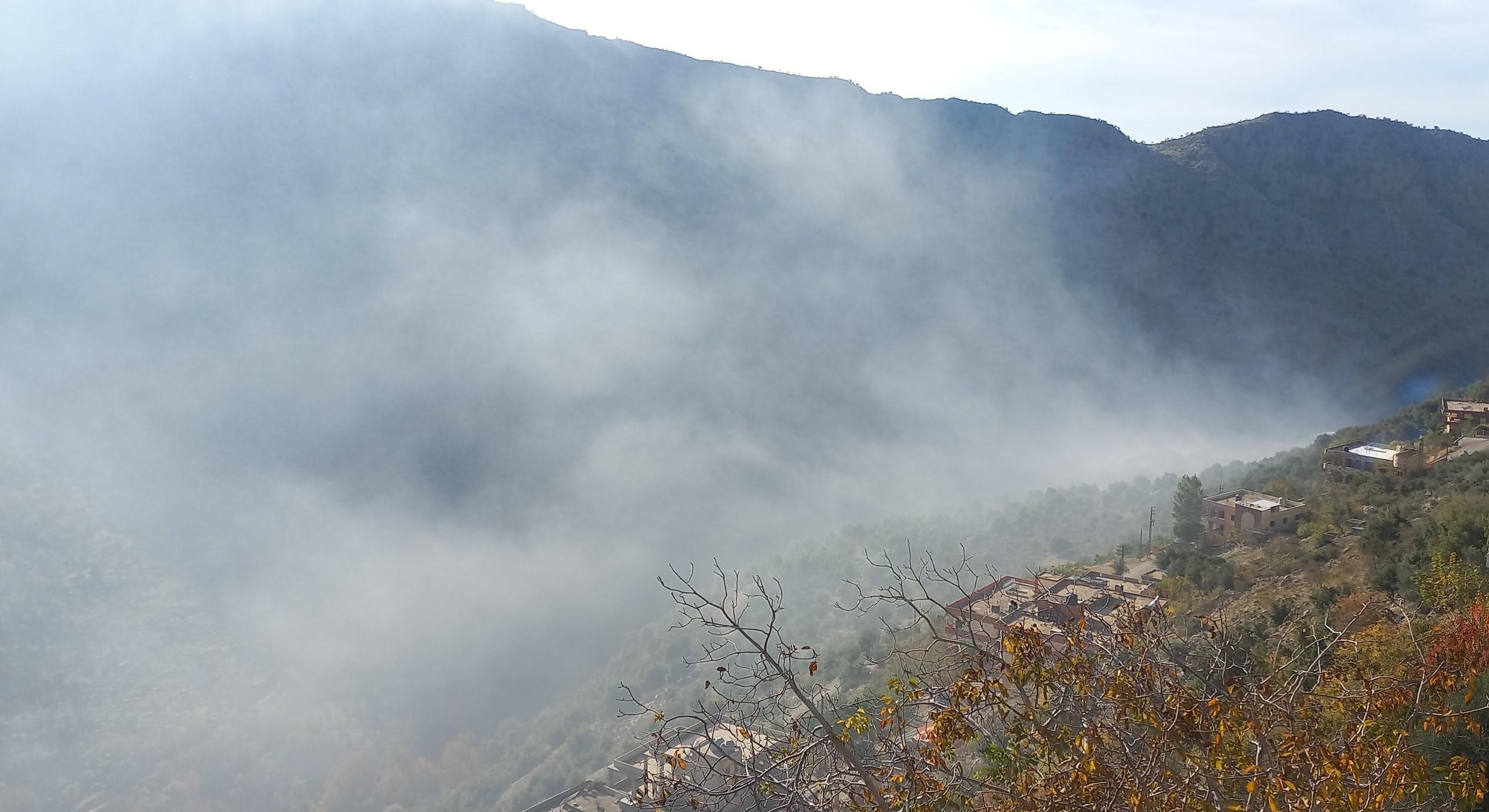Israel exacerbates the climate change crisis and threatens the lives of citizens in Southern Lebanon - Zahraa Al-Najjar
Since the beginning of the genocide in Gaza and the Israeli aggression on Southern Lebanon, the Israeli occupation army has continued to employ the "scorched earth policy". This approach has historically involved widespread devastating, as it has never hesitated to commit massacres, occupy lands and destroy livelihoods in the occupied areas to build new colonies on the ruins of the victims of the Palestinian people. Previously, social media did not exist to document these massacres that Israel has always denied, but nowadays, the advent of technological development has played a crucial role in exposing and documenting the practices of the Israeli enemy in Gaza and southern Lebanon, such as the use of chemical weapons, targeting hospitals, ambulance teams, journalists, civilians, in addition to destroying all productive sectors, in particular those responsible for ensuring food and health security throughout the war.
“Scorched earth policy” is defined as the military tactic of destroying everything that enables the enemy to wage war, including crops, livestock, buildings and infrastructure.1
According to an article published in the newspaper Al-Safir on August 31, 1979, In Lebanon, since the seventies of last century, Israel has resorted to phosphorus weapons targeting civilians and fertile agricultural lands. Quoting a statement made by Andrew Young, the former US representative to the United Nations, to the magazine Nouvel Observateur, where he strongly criticizes the Israeli bombing and their use of phosphorus and cluster bombs in Lebanon, considering it an immoral act and describing their behavior as terrorist.2
Phosphorus impact in human health:
The use of phosphorus poses a significant impact on the health of citizens. Short-term inhalation causes coughing and throat and lungs irritation, while a condition known as “phosphorus jaw,” can result in the difficulty of healing mouth wounds and jaw bone disintegration. Digesting or drinking even small amounts of white phosphorus can inflict severe damage to the liver, heart, or kidneys, characterized by symptoms like vomiting, with intense stomach cramps, potentially leading to death. Skin contact with burning phosphorus, can cause skin burns or damage to the liver, heart, and kidneys. The Environmental Protection Agency does not classify white phosphorus as a carcinogen for humans3.
Zainab, a lady that we have met from southern Lebanon, shared her experience with phosphorous bombs during her displacement in 2006, in search for a safer place. She said: “While we were fleeing from our village, which was being bombed and destroyed as a result of Israeli attacks, to another village that was safer and less dangerous, the road was bombed with phosphorous bombs, terrifying us and causing my injury. I inhaled white phosphorous and developed symptoms such as vomiting and high fever. It was difficult to secure medicine during the war, I kept suffering throughout the war which has greatly exhausted my body. My mother has risked her life to secure the necessary medicine and treatment. That day was one of the most difficult days in my life, although 18 years have passed, I still remember this day in details and I always think that I might have lost my life that day due to the Israeli aggression and its crimes.”
The International Law Position on the Use of Phosphorus:
According to international law, the use of chemical weapons is regulated in accordance with the Chemical Weapons Convention that outlaws the production, stockpiling and use of chemical weapons. Not all munitions with harmful chemical properties are classified as chemical weapons, under this convention. Although white phosphorus is considered as chemical agent, it is not subject to the Chemical Weapons Convention, but under customary international humanitarian law, which strictly prohibits the use of weapons or methods of warfare that cause unnecessary loss or excessive harm, customary international law is a legal framework applicable to all states. Customary international humanitarian law also requires states to take all feasible precautions to avoid any harm that might ….to civilians due to incendiary weapons. However, it is employed in various conflicts, where white phosphorus munitions cause direct and indirect harm to civilians and to their property as a result of chemical reactions between the substance and oxygen. It is worth noting that while Lebanon has ratified the Convention on Certain Conventional Weapons, Israel remains among the few states that has not ratified this convention4.
Additionally, incendiary weapons are subject to Protocol III of the Convention on Conventional Weapons. Palestine and Lebanon have joined this protocol, while Israel remains outside it. Protocol III prohibits the use of air-delivered incendiary weapons against “concentrations of civilians,” but it does contain two major loopholes:
The protocol restricts the use of some, but not all, ground-launched incendiary weapons against civilian populations, including white phosphorus artillery strikes in Gaza. On the other hand, the protocol’s definition of incendiary weapons includes “primarily designed” weapons to set fires and burn people, phosphorus if they are used for non – incendiary purposes includes, and thus arguably limits accountability for general – purpose munitions, such as those containing white phosphorus, if used as smokescreens, even if they have the same incendiary effects. Human Rights Watch and several CCW member states have recommended closing this loophole and tightening restrictions on the use of ground-launched incendiary weapons.
Israel uses phosphorus in southern Lebanon:
According to Human Rights Watch, Israeli forces have used phosphorus munitions in at least 17 different towns in southern Lebanon since October 2023, five of which were illegally air-dropped over populated residential areas, as verified by videos and photos. The use of white phosphorus bombs in populated areas has forced civilians to flee to safer areas, especially areas far from the border. However, on June 6th, 2024 Israel has expanded the war, and targeted Nabatiyeh al-Fawqa, Yahmor, Zawtar, and Kfarman with phosphorus bombs for the first time since the beginning of the war5.
The use of phosphorous bombs by Israel in southern Lebanon over the past months has had a severe impact on food security, agricultural land and local economy. Although the government has not yet been able to carry out a definitive assessment of the losses sustained by farms and fertile land, The Ministry of Agriculture has reported that 683 fires caused by the use of white phosphorus burned over 2,100 dunums (acres) of land, Damage assessment has indicated that a total area of 60,000 dunums (acres), including both forest and agricultural lands has been affected. The impacted trees included olives, pines, and oaks. The damage breakdown includes 55% of forest areas with oaks, molasses and garlands, 35% in agricultural trees like citruses, and 10% to herbs.
Additionally, the incident resulted in the death of 340,000 birds, 970 head of cattle, and the damage to 91 agricultural tents, 310 beehives, and a total destruction of a 600 square meters feed warehouse, as well as the targeting of 8 farmers.
The use of phosphorus bombs has devastating long-term effects on the soil, rendering it sterile and unable to support agriculture. Specifically, these bombs cause significant erosion and burning, stripping the soil of essential organic materials and moisture, essential for rain-fed southern agriculture, particularly olive cultivation. Studies indicate that bombed areas have witnessed a 13% reduction in water retention, a 51% loss of organic matter, and changes in soil color from dark brown to light brown, and soil texture has changed into harder stone blocks which hinder plant growth, in addition, the percentage of the good phosphorus existing in the soil benefiting the plants has decreased6.
It is worth noting, that a large number of people residing in various southern regions in Lebanon rely on agriculture and on the manufacturing of natural food products, in particular the Lebanese provisions that the people of southern Lebanon have always been famous for, especially olives, to secure their source of income. However, the Israeli attacks have inflicted great losses in the short and long term, as the people of the region lost their fertile lands, and thus the Israeli attacks deprived the Coming generations from fertile soil that has always been a source of food security for their people.
Ultimately, Lebanon is suffering from a climate change crisis that is harming agricultural crops and posing a continuing threat to food security and food sovereignty. However, the Israeli aggression continues to destructively target the efforts of the Lebanese and the international community in mitigating the impact of climate change and always seeks to render Lebanese lands uninhabitable and sterile. Israel has succeeded in causing sustainable damage to a number of agricultural lands in southern Lebanon, rendering it sterile after having been a source of livelihood and food for our ancestors and families. Therefore, the international community along with the local authority are required to take legal action against the Israeli government and its criminal actions that threaten the Lebanese lives and their environment.
1. Scorched-earth policy | Definition, American Civil War, & World War II | Britannica
2. Al-Safir Newspaper, 31-08-1979 "Young: Israel's use of phosphorous bombs is considered an act of terrorism"
3. Agency for Toxic and Disease Registry, Division of Toxicology and health human sciences
4. AUB Policy brief, November 2023, the socio-environmental impact of white phosphorous ammunition in south Lebanon, analysis and risk mitigation strategies”
5. Human Rights Watch, Lebanon: Use of White Phosphorus Endangers Civilians, Air-Bombed Munitions are illegally Used in Populated Areas.
6. AUB, The effect of phosphorus bombing on agricultural soil in southern Lebanon, 2006.
This article is part of the special edition of ANND’s monthly newsletter for the month of July 2024. These articles were prepared by young men and women from the Arab Youth Network. The opinions and ideas expressed in these articles express the views of the authors and do not necessarily reflect the official policy or position of ANND.
About the Arab Youth Network:
The Arab Youth Network seeks to provide a regional platform for young men and women from different countries in the region to have their voices heard, enhance their engagement with various development and human rights issues, and engage in influencing public policy.



